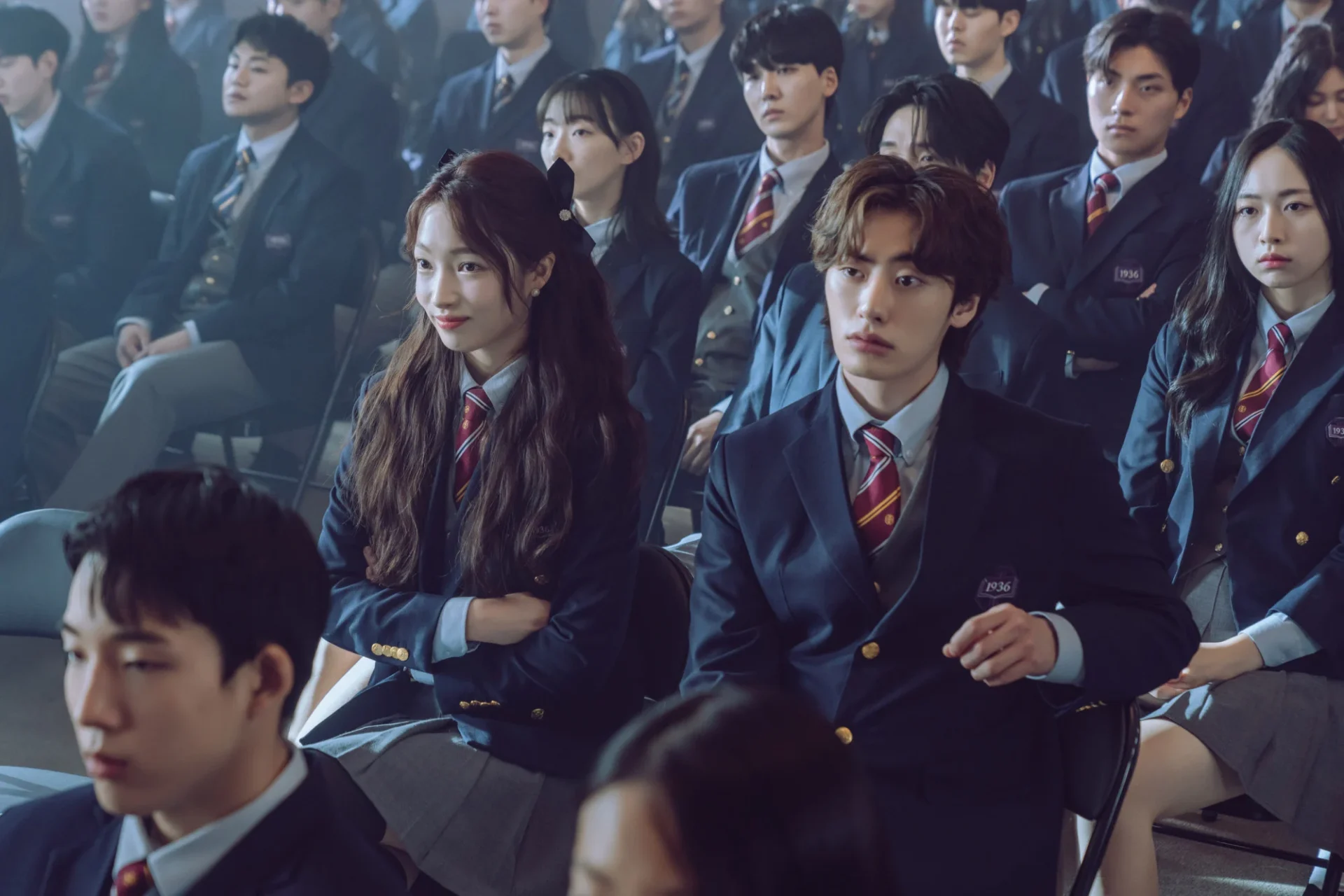In Netflix’s latest Korean drama series “Hierarchy,” the heirs to Korea’s top chaebol—family-run corporations—dominate the prestigious Jooshin High School. However, the arrival of a dashing scholarship student disrupts their strict social order. Despite the intriguing premise, “Hierarchy” disappoints, as the anticipated social upheaval never materializes. Instead, the series oscillates between a vacuous high-school romance and a bland revenge drama.
The story begins with a dark and stormy night where a handsome young man, Kang In-han, a scholarship student at Jooshin High, is run down and killed by a speeding car. His death opens a spot for a new scholarship student, Kang Ha (Lee Chae-min). Ha, perpetually smiling and undaunted by Jooshin’s social hierarchy, quickly makes his presence felt in the school, where scholarship students are marked by different-colored ties.
At Jooshin, the school’s royalty includes Kim Ri-an (Kim Jae-won), heir to the Jooshin Group, and Jung Jae-i (Roh Jeong-eui), heiress to the Jaeyul Group. Ri-an’s influence is so strong that school assembly doesn’t end until he leaves. The elite group is rounded out by Yoon He-ra (Ji Hye-won) and Lee Woo-jin (Lee Won-jung), who is secretly involved with a faculty member.
Upon returning from a three-month stay in America, Jae-i challenges Ri-an to a supercar race and wins, demanding a breakup as her prize. The school’s social order is further disrupted when Ha boldly kisses Jae-i during a game of truth or dare, inserting himself into the elite group.
Throughout seven episodes filled with excessive filler, “Hierarchy” attempts to unravel the mystery of In-han’s death and the blackmail messages Jae-i receives. However, simple storytelling isn’t the issue; it’s the substance and character charisma that count, and “Hierarchy” lacks both. The series relies heavily on clichés but fails to inject any fun into them.
The show begins with a critical stance on chaebol but soon sends mixed signals. Besides the confident Ha, other scholarship students are depicted as unattractive and subservient, suggesting they are unworthy of challenging the Jooshin elite. As the plot progresses, viewers are encouraged to empathize with the chaebol heirs, undermining the initial critique of social inequality.
Ultimately, “Hierarchy” falls short by being dull and insincere. It masquerades as a commentary on social issues but ends up glorifying the rich and beautiful. The high-school drama feels half-baked and artificial, the revenge plot lacks tension, and the romance fails to ignite. With summer here, there are certainly more engaging ways to spend your time than watching this uninspired series.
READ MORE:
